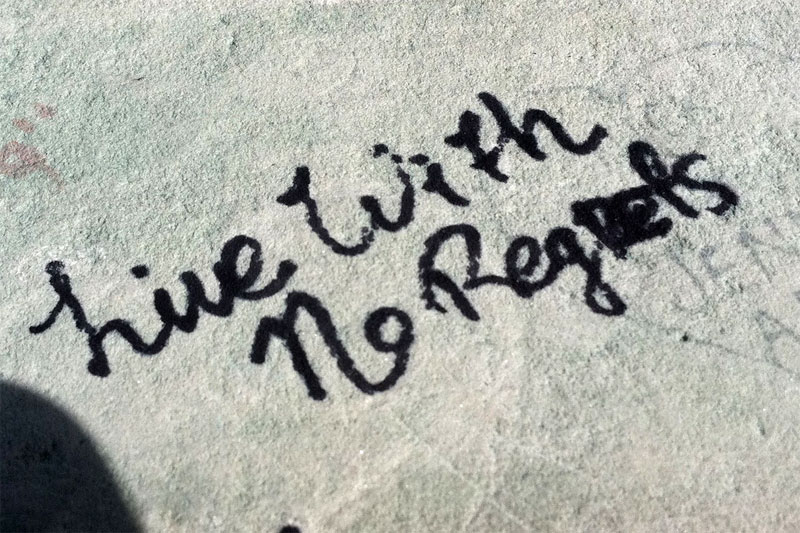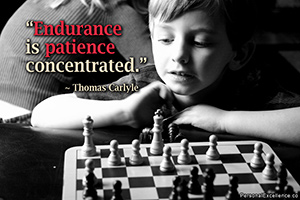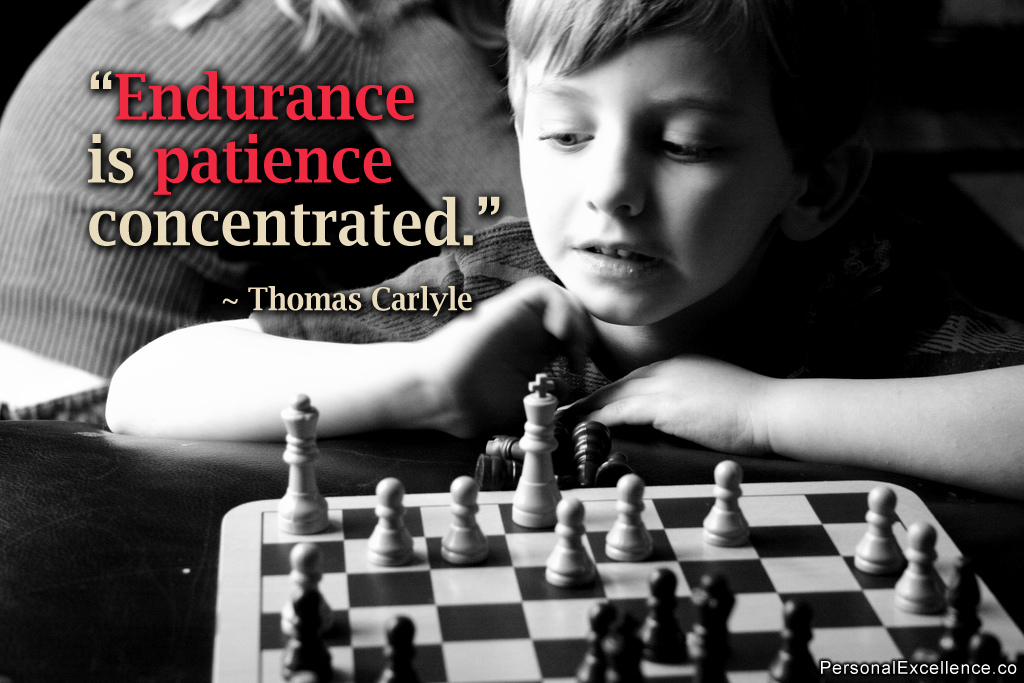
A palliative nurse who cared for dying patients in the last weeks of their lives took the liberty to record the most common regrets among them. Among these regrets were revealing statements like wishing they didn’t work so hard, wishing they had the courage to express their feelings, and wishing they had stayed in touch with their friends.
I believe people can get striking clarity and wisdom in the last moments of their death. In this episode of The Personal Excellence Podcast, I share the top 5 regrets of the dying, as identified by former palliative nurse Bronnie Ware, and my thoughts and pointers on how we can use this wisdom to better our lives.
- Regret #1: I wish I’d had the courage to live a life true to myself, not the life others expected of me [02:26]
- Regret #2: I wish I didn’t work so hard [11:30]
- Regret #3: I wish I’d had the courage to express my feelings [18:43]
- Regret #4: I wish I had stayed in touch with my friends [23:51]
- Regret #5: I wish that I had let myself be happier [27:56]
Listen to the podcast via my online player, Apple Podcasts, Spotify, Google Podcasts, TuneIn, Amazon Music, or subscribe directly to my RSS feed.
If you've found The Personal Excellence Podcast useful, I'd really appreciate it if you can leave an honest rating and review on iTunes. Your review makes a difference and will help spread the message of conscious living to the world. Thank you!
Top 5 Regrets of the Dying [Transcript]
Welcome to the Personal Excellence Podcast, the show that’s all about helping you be your best self and live your best life. Now, your host, Celestine Chua!
Celestine Chua: Hey everyone! Welcome to The Personal Excellence Podcast Episode 7. I’m Celestine Chua from PersonalExcellence.co.
Today’s episode is a different one. I want to talk about the top 5 regrets of the dying, a topic that’s based on an article. Some of you may have read this before, because it’s an article that went viral several years ago. The article is by Bronnie Ware, and she was a palliative nurse who cared for dying patients in the last weeks of their lives.
She penned an article on the top 5 regrets of the dying because after all these years of just caring for patients who were going to past on, she noticed recurring trends in their thoughts, things they wished they did. This could be things like wishing they didn’t work so hard, wishing they had the courage to express their feelings, and so on.
I thought that this would be an insightful topic to talk about today because I believe people get clarity during the last moments of their lives. It puts things into perspective, like things they wished they did or things they wished they didn’t do so much of. It is good to review these to understand what’s on their minds, and also to use this as insight and wisdom to reflect on our lives and whether it’s heading down the path we want.
In today’s podcast, I’m going to be reading snippets from Bronnie’s article, covering the top five regrets of the dying, and sharing my thoughts and perspective on them. At the end of the podcast, I’ll share the link to Bronnie’s article so you can take a look for yourself.
Regret #1: I wish I’d had the courage to live a life true to myself, not the life others expected of me
The first regret, “I wish I’d had the courage to live a life true to myself, not the life others expected of me.” Bronnie says, “This was the most common regret of all when people realized that their life is almost over and look back clearly on it. It is easy to see how many dreams have gone unfulfilled. Most people had not honored even a half of their dreams and had to die knowing that it was due to the choices they had made or not made.”
I feel that this is probably something that — fortunately — is starting to fade, the whole notion of feeling that we need to live a life based on other’s expectations. I do feel that it isn’t so dominant in today’s world compared to, say, 20 or 30 years ago. The people whom Bronnie worked with, they were obviously born before most of us here listening to this. They probably grew up with a set of very strong social norms that you need to behave in a certain way or you need to follow certain norms [to be accepted].
That said, there are still many societal expectations that weigh on us today. It can be tricky breaking out of these.
- A very simple example would be the obligation to be attached or get married by a certain age. This is especially so for people in Asia, people in China or of the Chinese culture, and people from India or of the Indian culture. There’s this strong pressure to be married by a certain age, otherwise, you’re considered a “leftover woman” or “leftover man.” This pressure is stronger for the females than the males.
- Another example is being expected to be in a certain job or to reach a certain pay grade by the time you are of a certain age. You should achieve a certain level of career success by X age. If you don’t, something must be wrong with you or you’re just not that good. This is especially so in countries where there’s a lot emphasis on work, countries like Singapore. I’m assuming Hong Kong as well. Of course, I’m sure in corporate America too.
There can also be expectations from our parents, who feel that you need to do certain things or who expect that you take over their business (though, I don’t think it’s very typical now). There could be all these expectations on us that we need to act in a certain way.
Of course, I don’t think it’s about casting these expectations aside and vehemently making a stand and saying, “This is my life. This is what I want. If you don’t agree, if you have other kinds of expectations, then too bad, I’m not going to care about them.” I don’t think it’s like this, though it may well work in certain cases. In some cases, it may well be the only way out. I think it is important to understand the expectations that have been placed on us as well as our responsibilities, especially responsibilities that we want to uphold and integrate them into our decision making.
At the end of the day, it is very important that we understand our needs and wants, and to honor them as we live our best life and not let other people’s expectations cloud over our inner needs and desires. Or even suffocate, conceal, and cover them. For example, maybe you happen to live in a society where there is a very heavy emphasis on money and you’re expected to be in a certain career or reach a certain income to pay for your basic needs. But your real passion is in the arts, and that may not have as good of an income or income potential. Then, maybe it is about finding the path to pursue your passion while still generate a healthy income. This answer may not be before you right now. If it is, it will be clear. It may be a path that you need to craft out yourself and you need to devise. But it all starts by first planning and envisioning.
An example would be when I was in my corporate job. My passion is in personal development and helping others grow. At that time, I was looking around at the possible jobs that I could take on, including NGOs, humanitarian work, etc. Ultimately, I realized that that was no option out there that would fit my needs and passion in the way I was thinking of. It was then about creating my own path that would best fit my passion and needs, and allow me to pursue it and bring it to the highest level. Then I started thinking, Okay, this means that I need to start a business. What would this business look like? I started asking all these questions to myself and planning them. I share more in the article, “Passion or Money.”
Of course, the result was not immediate. I had to take time to plan. Then I had to think, Okay, when do I want to quit? Then starting my business, and doing it full time and putting all my energy into making it work.
All these took years. But it started from first taking the step to craft out my ideal life, to understand and honor that I have my own needs and direction in life. Just because society prizes a certain status or symbol, a certain thing like money, it doesn’t mean that we need to bark up this tree. We need to first understand what our needs are, to respect them, while understanding our other options. Then, work on building this bridge to bring us from where we are now to that ideal path, while not heavily compromising our loved ones’ needs and our responsibilities.
If you have been living a life mainly based on other’s expectations and needs, is it time to just start thinking about yourself? Like for once, to start thinking about your own needs, your wishes, your priorities, your wants? How can you start integrating them into your life now, even with a small baby step or in a small fashion?
The more you do that, the more energy you have, the stronger your spirit, the more you’re able to take on. In the end, following your path is not something that drains you. The more you do that, the more you’re capable of taking on more. It’s just incredible. It’s counter-intuitive, but at the same time, it’s not.
Regret #2: I wish I didn’t work so hard
Let’s look at regret number two, “I wish I didn’t work so hard.” How many of you guys can relate to that?
I live in Singapore. In Singapore, there is an immense work culture. I don’t just mean being committed to your work. There is just an obsession with work here. Singapore employees, they have been shown to be some of the most stressed-out workers in the entire world. We are one of the countries that work the most hours in the world. One in five Singapore workers works more than 11 hours a day. Singapore as a country is the most sleep-deprived, if not one of the most sleep-deprived countries in the world.
This comes down to this strong national focus on working just to live, that work is our life. There is little to no concept of self. I don’t think that it’s the fault of the citizens here as much as everyone is trying their best to keep up in this society where the costs of living keep rising. I feel that this whole situation has a lot to do with the policies that are being passed, as well as the unrelenting focus on economic growth by the leaders of the country. Though, that’s a separate thing altogether.
But my point here is that this whole regret of, “I wish I didn’t work so hard,” this is something that rings truer now than ever, especially if you live in an urban city. In urban cities, generally, there is a very heavy work culture, especially in places like New York, Singapore, Hong Kong, and Tokyo. To that, it’s important to recognize your priorities in life.
I can understand if, say, you’re single. Naturally, if you are single, most of the time people who are single and living in urban cities, they tend to invest a lot of their energy and self into work because work forms a big part of their identity. But you want to also think about whether this is what you want in your life, 10, 20, 30, 40, 50 years from now.
When I was in my 20’s, work was the core of my being. Because like I said, in Singapore, here, work is associated with you, like work equals the person. That is how it goes. Conversations usually go, “Oh, what do you do? What’s your work?” People associate you, your status, and your worth with your occupation, as well as your salary or without knowledge of that, your material possessions.
Growing in such a culture in my 20’s, naturally, work was a core part of myself. Later on, there was my business PE. But PE was different because it was a conscious choice, and PE is based on my life purpose. It is something I am passionate about. I don’t see it as work. It is just something I naturally want to do no matter what happens.
Then I got married several years ago. After that, it helped me see things differently, especially after I started hiring a staff, As “an employer,” I started to really think about how to protect and safeguard my staff’s needs, working hours, and workload, and ensuring that she doesn’t get overloaded or that things are well planned out. That she has a day’s off when she can rest and focus on other priorities, and so on.
It got me thinking as to how I didn’t really get that when I was an employee. Nothing to do with my previous company at all, it was just the whole work culture in my country, and it was or still is, if I may say so, really toxic. The funny thing is that, over here in Singapore, working overtime is totally expected. Immersing yourself in work is a given and you’re looked upon negatively if you don’t do that.
Then being married, I also have to dedicate a part of my time, like spending time with my husband on the weekday nights and then on the weekends. I want to do that. I love him. I want to spend the rest of my life with him. All these things put together make me realize that there’s this implicit assumption here where you devote your whole self to work. There’s just something wrong. Because if say you do that, how are you supposed to have time for your loved ones, your family, your parents, if your parents are around? If your parents are around, they probably don’t have much time left on Earth, in the sense that they are older than us by several decades. Why should we be spending the next few decades devoting the whole time to work when we should be proportioning and managing our time properly so that we have ample time for the people we love and not regret this when they pass on? It doesn’t make sense at all.
How about, say, childbearing. For those of you at the stage where you’re thinking of having a family, it’s very easy to devote yourself to work and then not think about having a child. By the time you are in the space to think about that, maybe it’s already too late because your childbearing years are over.
These are things to give due consideration as opposed to immersing and devoting ourselves to work for whatever reason, whether work defines who you are or whether money is just really important to you. I think that everything in life can be important, but ultimately, we need to decide what the most important things to ourselves. Because you can keep earning money and you can keep getting better and better and work on expanding your portfolio, and all that. If you’re running a business, the sky is the limit. You can do whatever you want. You can keep growing it endlessly.
But we have to bear in mind our biggest priorities at the end of the day. Because we can’t just go in an endless loop where we’re earning money and more money and more money. But does this actually give us the kind of satisfaction that we are looking for in life? Is there an end that we’re working towards? Is there a possibility that in our mad chase for a certain objective that we may be missing out on certain things or we may be neglecting certain things? Something for us to think about.
Regret #3: I wish I’d had the courage to express my feelings
Regret number three, “I wish I’d had the courage to express my feelings.” This is what Bronnie says, “Many people suppressed their feelings in order to keep peace with others. As a result, they settled for a mediocre existence and never became who they were truly capable of becoming. Many developed illnesses relating to the bitterness and resentment they carried as a result.”
I’m actually going to be recording a new episode on how to be more assertive in response to a PE reader question. It’ll probably be coming up after this. That will be relevant to this. (Update: The episode is up! How To Be Assertive, Not Aggressive)
A lot of us were probably scared about expressing ourselves. Maybe because we fear rejection, we fear judgment, and we fear what people would think about us. Maybe we fear that we’ll say something that people, they’ll think that we’re stupid or we say something that they will just toss away or put down.
To that, I think it is important to recognize that ultimately, we cannot control how people will behave. We cannot control how they would react. Because of that, if we are continuously censoring or filtering ourselves because we are fearful of how they would act or react, doing so will only cause us to dim our light. Because there are basically all kinds of people in this world and everyone have different opinions and thoughts. I mean, we have people who are in support of gay marriage. We have people who are not in support of gay marriage. We have people who feel that Trump will be a better president and we have people who feel that Clinton will be a better president. We have people who just think both of them suck. Basically, there are all these different people with different opinions.
If you are constantly fearful of what people will say or respond, and you filter yourself accordingly, you can never win. Because everyone is different. Everyone will have a different response. There will always be people who are going to have a negative response to a particular opinion that you have, which means that you basically can never arrive at a point where people are happy. This is something that I learned for myself after continuously trying to censor myself and feeling that I need to oppress my voice. I just realized that it was just the most important for me to convey what needs to be conveyed through my articles, through my blog. If some people don’t like it, then that’s just too bad.
It’s the same for you. Think about the most important things that matter to you. Allow yourself to have a voice in these things and to express yourself in them.
For example, let’s say if there is someone whom you’re interested in. You don’t necessarily have to go up and say “I love you” because that will be probably crazy, especially if you haven’t really been dating. But you can take little steps, like asking that person out or arranging for some kind of group gathering where both of you can be in it and then go out together and just get to know each other more and interact more. This can be a step towards expressing your feelings, not necessarily in the sense of saying, “Oh, I love you. Do you want to be with me?” but expressing your feelings through all these little actions that can then finally build up to the final point where you convey your feelings directly.
It could be, say, in a relationship if you have certain opinions, and maybe they are not pleasant and you’re worried about expressing them. But if these are things that are important to you, then you need to speak up and talk about them. Looking for the right moment and just sharing them with your partner or with your loved ones or your close friends. If these are important things and if these are people who matter, then they will want to hear what you have to say. Then it will be important for you to express those thoughts and feelings.
I would like to you to apply this from now on. If there’s ever any situation that you feel strongly about, allow yourself to express that, to let your opinions be heard. You can start off on a one-to-one basis. That makes it easy for you to then start expressing your opinions, your feelings to other people.
Regret #4: I wish I had stayed in touch with my friends
Regret number four, “I wish I had stayed in touch with my friends.”
This regret is interesting because in the previous generation where there wasn’t any social media, Facebook, and so on, it probably was more challenging for people to stay in touch. Then now, we have Facebook and social media, it is so easy to keep in touch, like just being a friend to each other and you can easily see people’s updates through your newsfeed and by clicking over to their profile or just sending over a text message or just adding someone to WhatsApp, and then starting a conversation that way.
The funny thing is that I think this regret can still be relevant in our time.
- Because while there are all these social media networks and different things that make it easy to stay in touch, I feel that these connections, to some degree, are more superficial than how they could be. That’s one thing.
- The second thing is that as we are connected to these people, I feel it’s easy to just take for granted, that, “Oh, yeah, all these friends are just in my social networks. They are just a click away, so there’s just simply no need for me to especially keep in touch because I know they are one click away. If at any point, I want to message them, I can always do that. ” This can make us take for granted the connection, just by the sheer feeling that “Okay, we are linked up,” then there’s really nothing much that we need to do.”
- And then there is a third factor, which is linked to the second regret we were talking about just now. All these different things that they are taking our attention away, maybe it is work or maybe it is your family, if you are a full-time homemaker, things like that. They can take our time, energy, and attention away from our dear friends.
Now, to this, I think it is important to think about your friends, your friends who are dear to you, the people who have touched you in your life. Just think about them. It could be when you were a teenager, someone who really touched you and played a special role in your life. It could be when you were a young adult or if you are still a young adult, or if you’re not adult yet, then your teenage years, in the adolescence years probably will be more relevant.
But whatever it is, someone who played a special role in your life, who was there for you, and are still there for you when you needed them. People who have been with you through thick and thin. People who lent you a shoulder when you needed that. Or people who just did very small acts for you. It may not mean anything to other people or to them, but it really meant the world to you.
To these people, just start to make a special effort in keeping in touch with them. Maybe just send an SMS to them like right now. You can pause this podcast and just send a text message to them just to check with them like how they are doing, just to send some good wishes and so on. Or you can send an email to them or even Facebook message them and just start a connection. Make this a habit. Make this an ongoing thing.
I always make a point to message my friends every once in a while just to check on them and see how they are doing. Remember never to let the circumstances, like whether you are in a different country or whether you’re busy with life’s agendas and work agendas because we are always busy with something, whisk you away from keeping in touch with your dearest friends.
Regret #5: I wish that I had let myself be happier
We move to the last regret, regret number five, “I wish that I had let myself be happier.”
Does this ring true with any of you? “I wish that I had let myself be happier.” The funny thing is that even though we are in a world today where we are relatively more affluent as a civilization, as a population, even though there are more shiny objects now than ever, more material things, more flashy things, I feel that in a way some of us are not necessarily happier.
I see a lot of these coming up in terms of social ills. It can be, say, cyberbullying, people bullying other people. So you have the victims. For the bullies, I always feel that if someone is releasing or enacting anger or violence, and it can be emotional violence towards someone else, then that person probably isn’t happy at all.
We have gun violence. We have shootings, mass shootings. Even in countries where it’s supposed to be safe, you don’t necessarily see people being happy. Again, in Singapore, I think if you just take the public transport, you can actually see that many people are very, very stressed out. Most people, if not all, actually have eye bags reflecting — I mean, of course, for some people, they just genetically have eye bags. It’s not like I’m saying that eye bags are bad. I’m just saying that it also depicts that people are sleep deprived, or they are trying to sleep but they are having insomnia or not able to have quality sleep. Where people are just being bogged down with all these stresses of life and expectations, societal expectations, people’s expectations of us who we should be, what we should do, and all these endless responsibilities.
I feel that a lot of these are just self-created. When I mean self-created, I’m not saying that it’s your fault. I’m saying self-created like human-created. Because maybe you have sudden stresses, and these stresses could be created by the people who create the policies or made the society this way, which could be people from several generations ago or it could be the policymakers today.
And it’s just sad. It’s sad because why does life have to be this way? Why do we have to put ourselves in these vicious cycles putting the pressure on people to do certain things, putting the pressure on ourselves to be a certain way? And at the end of the day, just mad chasing certain goals? At the end of the day, just not being as happy as we can be?
I feel it all starts with us and making shifts within. Recognizing that happiness is literally a choice. You may have the worst of circumstances right now. I’m not saying that all of us can just automatically be happy if we want to because some of us may well be in dire states or we may be in terrible circumstances. If you happen to be in such a situation right now, my heart goes out to you. I truly hope that you can recover and get well soon from whatever is the circumstance you’re currently facing. But I’m saying that happiness is a choice, should we be in a luxury where we can potentially contemplate and consider the viability of happiness in our state.
I want to take this opportunity to talk about Viktor Frankl. He has already passed on. But he was a psychiatrist, as well as a Holocaust survivor. Pardon my language, but he was through a lot of crazy shit. He spent years of his life in concentration camps. He spent a part of his life working as a slave laborer. It was in the concentration camps where his father, his mother, his brother, and his wife died. He had really been through basically some of the worst things that a man could ever experience in today’s world.
He had a very interesting insight, which is that after all these suffering in the concentration camps, he arrived at the conclusion that even in the most absurd, painful, and dehumanized situation, life has potential meaning. Therefore, even suffering is meaningful. This conclusion serves as a strong basis in his own teachings.
Here, I want to share an excerpt from his Wikipedia page, which shares an account of his experience he had while working in the harsh conditions of the Nazi concentration camps and how he was able to find meaning despite the extreme suffering.
“We stumbled on in the darkness over big stones and through large puddles, along the one road leading from the camp. The accompanying guards kept shouting at us and driving us with the butts of their rifles. Anyone with very sore feet supported himself on his neighbor’s arm. Hardly a word was spoken; the icy wind did not encourage talk. Hiding his mouth behind his upturned collar, the man marching next to me whispered suddenly: ‘If our wives could see us now! I do hope they are better off in their camps and don’t know what is happening to us.’
That brought thoughts of my own wife to mind. And as we stumbled on for miles, slipping on icy spots, supporting each other time and again, dragging one another up and onward, nothing was said, but we both knew: each of us was thinking of his wife. Occasionally I looked at the sky, where the stars were fading and the pink light of the morning was beginning to spread behind a dark bank of clouds. But my mind clung to my wife’s image, imagining it with an uncanny acuteness. I heard her answering me, saw her smile, her frank and encouraging look. Real or not, her look was then more luminous than the sun which was beginning to rise.
A thought transfixed me: for the first time in my life I saw the truth as it is set into song by so many poets, proclaimed as the final wisdom by so many thinkers. The truth – that love is the ultimate and the highest goal to which Man can aspire. Then I grasped the meaning of the greatest secret that human poetry and human thought and belief have to impart: The salvation of Man is through love and in love. I understood how a man who has nothing left in this world still may know bliss, be it only for a brief moment, in the contemplation of his beloved. In a position of utter desolation, when Man cannot express himself in positive action, when his only achievement may consist in enduring his sufferings in the right way – an honorable way – in such a position Man can, through loving contemplation of the image he carries of his beloved, achieve fulfillment. For the first time in my life I was able to understand the meaning of the words, ‘The angels are lost in perpetual contemplation of an infinite glory.'”
Here, Viktor is sharing this very harsh condition and suffering he was experiencing in one of the many moments in the concentration camps. Still, he was able to find bliss in that moment. In this example, he was talking about how it was through thinking about his wife, and through his love and his bond with his wife that actually helped him to find bliss amidst that physical torture and suffering.
But the essence here isn’t so much as saying, “Oh, you need to find a partner, a relationship, and be in a relationship before you can find bliss,” I hope that’s not what you’re getting from this. It certainly isn’t that key message.
The point here is that as Viktor says in this quote, “Between stimulus and response there is a space. In that space is our power to choose our response. In our response lies our growth and our freedom.” I think this is basically what Viktor was trying to say. We may have the worst circumstances with us right now. But the point is that our physical or external suffering at this moment, it doesn’t have to be linked with our emotional state. Because between this external experience and our internal emotions, there is actually a space. This space is basically our choice and our internal processing on how we wish to interpret this set of external circumstances and what we choose to make out of it. From that, then deciding, emoting, and feeling those emotional responses.
Here, I’m not talking about situations involving grief. I think if you’re coping with grief at this moment, then it is important to feel that grief, to process it, and not let it be stuck in you. But, say, in a general circumstance, and you’re experiencing problems, very pressing problems and difficult problems. There is a space between these problems and our own emotions and our own thoughts. It is about how we choose to interpret these circumstances and make the best out of them as supposed to continuing to suffer in these situations.
Does it mean that we should just be happy for the sake of being happy and just keep smiling and laughing regardless of the problems and then just continue living our life? No, that is not what I’m trying to say. I’m saying that even in the most difficult of circumstances, we can choose happiness, and most important of all that we take action to resolve these situations to elevate and move ourselves to a higher place rather than letting these problems perpetuate.
Whatever is the issue you’re facing right now, maybe it’s a job-related issue. See whether you can talk to your boss, or your coworkers and see how you can resolve that. Or let’s say you’re in a job that you hate. Start looking for a new job. You don’t have to quit right away and understand that we need our jobs to survive. But you can start looking for new opportunities, new options, just talking to people, understanding what are the options out there. Or maybe it is a relationship or friendship issue. It is something that you want to talk to your partner and your friend. Is it a family issue? Then do you want to involve your family members and sort of like work through this together?
Just remember that this regret, “I wish that I had let myself be happier,” this shouldn’t be a regret that you take with you to your grave. It’s the same for all the other 4 regrets: “I wish I had stayed in touch with my friends.” “I wish I had had the courage to express my feelings.” “I wish I didn’t work so hard.” “I wish I’d had the courage to live a life true to myself, not the life others expected of me.”
These are all things that we can start working on now. We can start to choose happiness. If you’re facing certain issues, we can start working on them now.
- We can start keeping in touch with our closest friends.
- We can start to learn to assert ourselves and express our own emotions and feelings.
- We can start to prioritize our relationships, our health, alongside work.
- We can start to live a life true to ourselves, our needs, as we live through our personal responsibilities and obligations.
All these things start from now. I don’t want you to live the next 10 years, 20 years, and 30 years of your life and then look back and wonder, “Where did that time go?” I want you to start living this life truest to you, and that at the end of your life, when you are on your deathbed, that you can look back and know that you have lived this life true to yourself, that you have lived a life well lived, you have really done your best, and you can look back with pride.
This is the life I want you to live. If you think now when you are on your deathbed, breathing your last breath, what is the kind of life you would want to have lived? What would you want to have done by then? What would you want your life to be like looking back?
Think about all these things. Then start making these happen at this very moment. Whatever it is, happiness, being close with friends, having a great social life, prioritizing your health, having a job that you love, etc. These are things that we shouldn’t be contingent upon circumstances or things that you only need do or work on 5, 10, 20 years from now. These are things that you can start doing now.
It may well not be something that happened overnight. It doesn’t have to be something that is effected overnight. But it can be something that you start, just taking a tiny step towards it right now. You’ll find that as you do that that your life becomes richer, more emotionally fulfilling, that you start really appreciating and loving life. And you start seeing things in a different spectrum that you have never really seen. Because what it means to live life to the fullest isn’t really the end state you’re at or which point you’re at, as much as you are constantly progressing and moving forward. That is what it means to live every day to its fullest. Because you’re actively making your life today the best day you can ever live.
Closing Note
If you like to read Bronnie’s article, you can check it out here. I would also like you to check out my article, 7 Limiting Beliefs Keeping You from Living Your Best Life. There, I share seven major limiting beliefs I observed amongst people. These beliefs may be beliefs that you’re aware are there or you know you’re not aware that they are subconscious and they certainly prevent us from living to our fullest potential. I outlined how to bust these beliefs.
I have another article, 10 Timeless Principles to be Happy. These are 10 timeless tips on being happy. These are principles that I apply myself to keep a positive state. If you tend to deal with little setbacks each day or each week, I have some tips for you to deal with them. You can read my article, 10 Tips to Deal with Daily Setbacks.
If you have found today’s podcast helpful, I would truly appreciate it if you could leave a positive review and rating on iTunes. Every review truly means a lot to me. I want to thank all of you who have been leaving reviews. All of these help in letting new listeners, like people who have not listened or downloaded the PE Podcast before, or even check out PE before, help them know whether this podcast is worth downloading, whether it’s something that they should check out. The reviews really go a long way in helping us reach out to more people and help them in their lives.
Thank you so much for listening. Truly an honor and privilege to be here speaking to you. I look forward speaking to you guys in the next episode. Bye guys!
Endnote: Thanks for listening to The Personal Excellence Podcast! For more tips on how to live your best life, visit www.personalexcellence.co
Related Resources:
- Top 5 Regrets of the Dying [BronnieWare.com]
- Passion or Money?
- About Viktor Frankl [Wiki]
- 7 Limiting Beliefs Keeping You from Living Your Best Life
- 10 Timeless Principles to be Happy
- 10 Tips to Deal with Daily Setbacks
(Image: Jason Howie)









 Thanks for reading. If you like my free articles, join my private email list and get my latest updates and articles sent right to your inbox.
Thanks for reading. If you like my free articles, join my private email list and get my latest updates and articles sent right to your inbox.